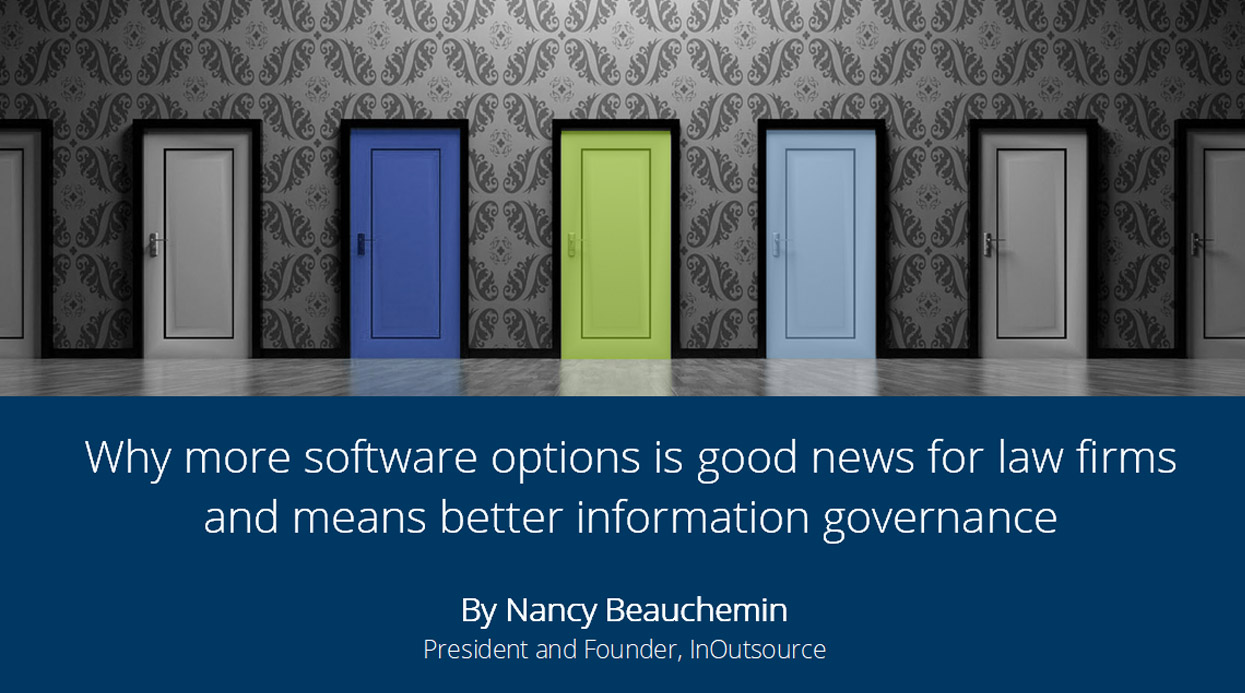
October 11, 2022
There was a time, not too long ago, when printing out paper documents was a small cottage industry for law firms, complete with dedicated printing departments. Many of us can recall spending hours standing in front of copy machines, organizing paper files into the right folders, and marveling at the lawyers’ love of paper.
Paper, at that scale, now seems like a relic of the past. The global pandemic and lockdown triggered the final cut when it came to going digital. Whether you loved paper or hated it, if your firm couldn’t cope with remote working, it meant clients could easily turn to firms that could.
From an information governance point of view, the equation has changed significantly. Most firms are probably still paying too much to store physical records. What has changed is that you no longer find senior partners standing in the way of destroying records that the firm doesn’t need to retain. There is momentum now behind getting rid of the backlog of decades-old files that are not subject to any preservation policy. Not only are firms slashing offsite storage costs, they are also reducing the liability risk associated with keeping old client records.
Finally on the agenda: Electronic records retention
Now many CIOs are also taking a hard look at retention of electronic information. The cost of storing electronic information has been growing steadily as well – and of course, the liability risks of storing client information for longer than you need have always concerned IG managers.
Furthermore, the global pandemic has changed the nature of the IG risks. The challenge now is: How do you identify and manage all the information stored in applications like Microsoft Teams and SharePoint? What about Zoom with its chat logs and recordings sitting in multiple locations, and all the other tools that firms and clients have embraced to enable remote and flexible working? How can your firm minimize security risks, better protect client information, and enforce IG compliance?
The good news is that applications for information governance and records management are finally catching up with what law firms actually need.
Adding a new solution in our portfolio
And that’s why here at InOutsource, we were very excited to announce our new partnership with LegalRM.
Law firms who have worked with InOutsource since the early days know that we have always put your needs first. In consulting engagements, we try to make the best assessment possible of your unique needs and help you find the software that will work best in your environment.
We were impressed with what we heard from law firms using iCompli, and our consultants have been gaining a better understanding of where and how the solution works best.
Three options: Good news for firms
Having three applications to choose from for IG and RM –– LegalRM, FileTrail, and iManage – is good news for firms. At InOutsource, our IG consultants and technical experts have been “going deep” on each of the contenders that we see most frequently on law firm shortlists. It means that we can work with you to identify the best match for your firm. You now have more choice than ever before to find the “right-sized” application that fits your specific environment and addresses your firm’s business objectives.
We are here to advise you as you evaluate solutions, or assess how to get better ROI from the systems you already have. And when it comes to implementation, integration, and enhancement of information technology systems, we are here as always to help you execute.
From insight to action: Defining your objectives
In our view, the best starting point for any IG/RM migration or modernization effort is always to first understand what your real information governance needs are. Our IG consultants often work with firms at this stage. Sometimes that involvement helps frame strategy — in ways ranging from full-blown assessment of existing IG policies, processes and objectives, or just informal advisory help.
Whether your firm is taking a hard look at retention and disposition, trying to make client file transfers more efficient during lateral hires and departures, or working to gain control over unstructured data in file shares and collaboration tools, InOutsource can help with everything from policy and process to technology implementation, data integration, and data cleansing.
We are incredibly excited to see the increased focus firms are placing on IG. Today firms have some great options for technology to help address their needs, as well as some tremendous opportunities to improve efficiency, reduce risk, and slash cost. With a unique mix of seasoned experts that integrate real-world IG knowledge with deep technical understanding, our team is ready to help across the board across all these issues. Please feel free to get in touch to learn more, or if there are specific issues you’d like to discuss.